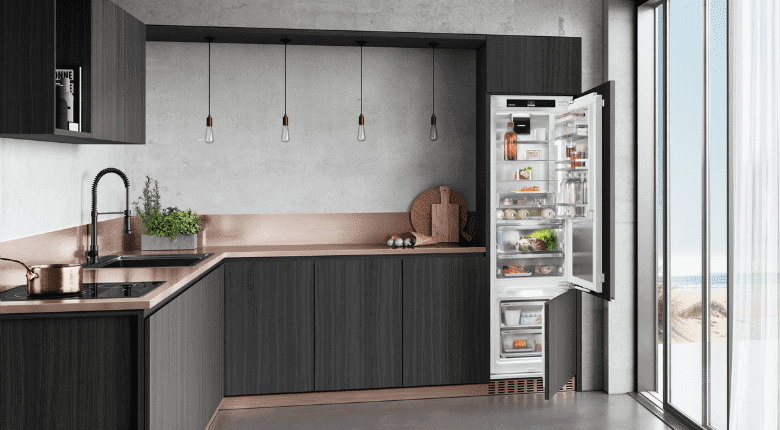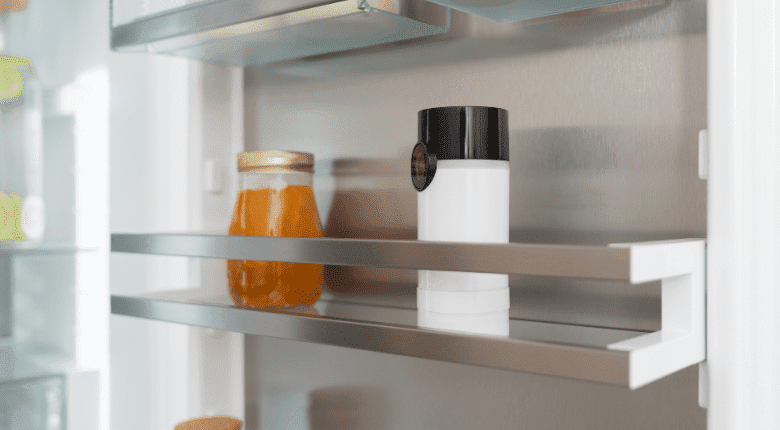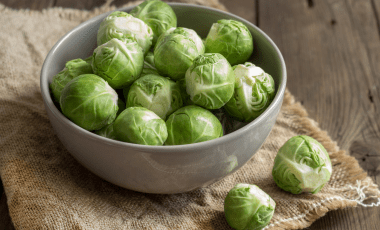Planning your weekly shop: If you are the type of person who needs to go shopping several times a week, or even daily, but is always missing something when preparing the next meal, and still has to throw out spoilt food at the end of the week, we have some necessary tips for you here.
Taking individual needs into account in your weekly shop
First things first: every single person has different needs for the weekly shop, and the preparation and flavour of their meals. So you need to work out what your priorities are first.
How many times a week do you want to cook with fresh ingredients? How many people are you cooking for? Do you want to do as little preparation and shopping as possible? Do you want the ingredients to be cheap, local or organic? How much storage space do you have for food, both at room temperature and in the fridge and freezer? You need to first answer these questions and then think about the next steps.
Planning your weekly shop: Create a meal plan for the whole week
Depending on the size of your household, it is possible to get all the necessary ingredients in just one weekly shop. To do this, you need to prepare a meal plan for the week in advance. In addition to the hot main meals, you should also consider breakfast, snacks and cold main meals.
For breakfast, snacks, and a cold main meal, you can probably create a relatively standardised list that you can reuse every week. This includes, for example, fruit, porridge, yoghurt and milk for breakfast; bread, spreads, cheese and vegetables for the cold main meal; and other fruits and vegetables, yoghurt or perhaps nuts, dried fruits and corn cakes for the snack cupboard. In the same vein, you can also decide whether you would like to make a list of the things you need on a digital notepad, the HNGRY shopping list app or basic pen and paper.
The list for hot main meals will most likely vary a lot. Before you shop, think about what and how often you want to cook over the next week. Take your schedule into account: what time do you cook? When does it make sense to cook double the amount so that you can have a meal ready to eat the next day when there is no time to cook? How many people will be eating? Will you have any visitors? Are you going to a restaurant?
It may be worth it to integrate individual components into several meals. This may be the case if a dish is planned with a vegetable that cannot be fully used up in one go. A large cabbage, for example, can go into a curry, a casserole and a quiche. This means a varied meal plan can be put together with just a few vegetables throughout the whole week. You can also reuse cooked components. A large portion of ratatouille can be combined with couscous in one meal and then layered between lasagna sheets for the next. This saves you time and energy in front of the cooker.
You should also pay attention to which fruits and vegetables are currently in season and are available locally. This will not only make your meal planning more sustainable, but will also be much more varied throughout the year. Take another look at your menu at the end: is it diverse and balanced? According to current recommendations for a balanced diet, you should eat fish once a week. Meat should only appear on your plate twice a week. Eat plant-based sources of protein, such as lentils, beans, chickpeas, tofu or tempeh.
Tips for your weekly shop and meal planning
- Taking individual needs into account in your weekly shop.
- Pay attention to what is on your calendar to estimate the time available for weekly shopping and cooking.
- Try to fully use up the ingredients you have bought (large cabbages etc.).
- Use individual components of your meal for another meal. For example, use a vegetable side dish twice and only change what you serve it with.
- Buy local and seasonal food in your weekly shop.
- Make sure that you have a varied and balanced meal plan/weekly shop.

Planning your shopping list and weekly shop
Once the meal plan is ready, you can create a shopping list for your weekly shop. Write down all the ingredients required for the meals. Now check which of the ingredients you have enough of at home. Take these off the list. Grab your shopping list and head to the supermarket. But don’t forget to eat before you go – we all tend to buy more than we actually wanted on an empty stomach!
Try to stick strictly to the shopping list while you’re there. Important things that you forgot when writing the list, such as a new tube of toothpaste, may of course be added to the shopping trolley. However, other impulse purchases should be avoided in the interests of your wallet and preventing food waste. If you are tech-savvy, want to save time, don’t want to carry bags and tend to make impulse purchases, you might be better shopping online. Here, you can order your shopping list and have it delivered to your door with the click of a mouse.
Quick guide to planning your shopping list and weekly shop
- Make a note of all the groceries you need.
- Compare this list to what you already have.
- Remove food from the list that you still have enough of at home.

No time to plan – the spontaneous weekly shop
We’ve all been there. After a long working day, you want to get the weekly shop done quickly, but you don’t have a shopping list ready and you can’t remember what food you still have at home.
With HNGRYnsite fridge camera technology, this stress is a thing of the past. Take a quick look at the HNGRY app and see the current contents of your fridge right away. This way, you can shop efficiently without forgetting groceries or accidently buying a product you already have. A real life saver for anyone who wants to do their weekly shop spontaneously but thoughtfully!
Storing the weekly shop properly
Read about where to store which foods best and how to stack your fridge properly here. We also have an article on how to best organise your fridge. Always pay attention to the right storage location in your Liebherr fridge or freezer, so that you can store your purchases in the best possible way. Throughout the week, consider which foods need to be used most quickly. You can use foods that have a longer shelf life in meals at the end of the week.
If you know that next week will be very stressful and there is little time to shop and cook, you can prepare for that this week. Always cook twice the amount you need and freeze half. For example, fill glass boxes with exactly one portion, so that the next week, you only have to put the frozen meal in the fridge the evening before, in order to defrost it overnight. A tasty meal every day helps you cope with the stress of the week! In addition, you have much more time to eat in peace or take a break.
Quick guide to storing the weekly shop properly
- Think about the best location to store your purchases.
- Take into account how long you can store the food and adjust your meal plan accordingly.
- Know you’re going to be busy? Prepare and freeze meals, so you can create tasty food despite a busy schedule.







